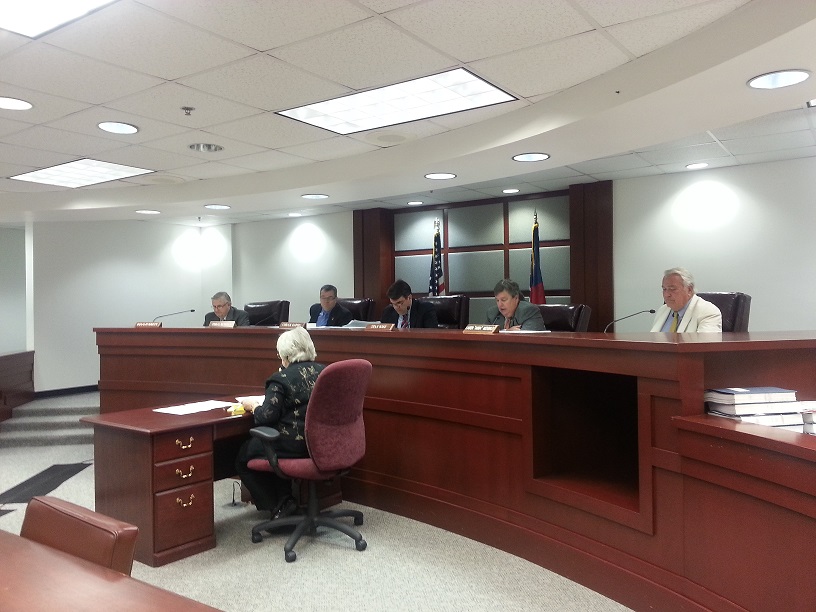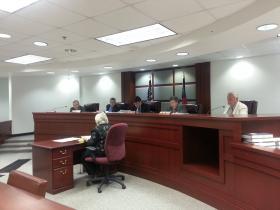Georgia PSC Approves Natural Gas Pipeline Replacement Plan

Michelle Wirth/WABE News
Many of Georgia’s natural gas customers will soon see higher utility bills. That’s after the Georgia Public Service Commission approved a $275 million dollar agreement with Atlanta Gas Light Company today.
Under the agreement, customers of 10 natural gas marketers who use the company’s pipes will begin paying an additional 48 cents per month on their natural gas bills this fall.
The agreement will be phased in over four years and will increase to a total of $1.45 per month by January of 2016 and go through 2025.
It will allow Atlanta Gas Light to replace more than 750 miles of plastic pipe, which was installed between 1965 and the early 1980s. PSC commissioner Bubba McDonald says replacing the aging pipe will continue to put Georgia ahead of many other states.
And he says the amount customers will have to pay is small in comparison to ensuring the company’s natural gas system is safe and reliable.
“The Consumer spends pennies on this docket today, but consider the life of an individual and as we’ve read and seen in the news media over time where a pipe explodes and whatever happens and lives. I compliment this commission this company for taking the bull by the horns and making things happen.”
Meanwhile, consumer advocates like Georgia Watch say the agreement is an improvement from the initial proposal. But Georgia Watch deputy director Liz Coyle says it’s concerned that Atlanta Gas Light and other utility companies are increasingly adding more charges to customer bills.
“Utilities used to when they had major capital expenses put it into the rate base and people would pay for it over time over the life of those infrastructure investments, and more and more you see utilities saying we want more and more certainty. People might not be in the state five or 10 years from now, but we’re going to benefit from them right now.”
Atlanta Gas Light says the likelihood of plastic pipe bursting is low and to date there have been no reportable incidents involving. But the company says the pipe shows a tendency to have a higher leak rate than more modern pipe.
9(MDAxODM0MDY4MDEyMTY4NDA3MzI3YjkzMw004))







